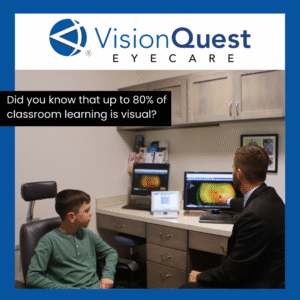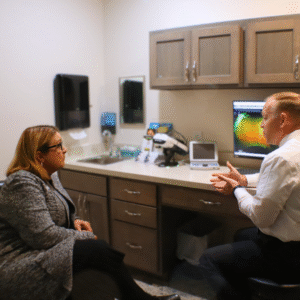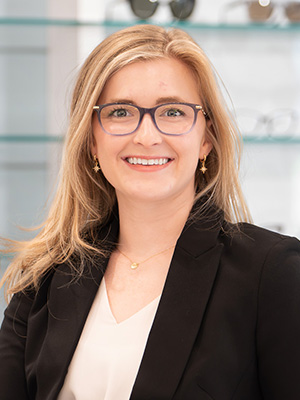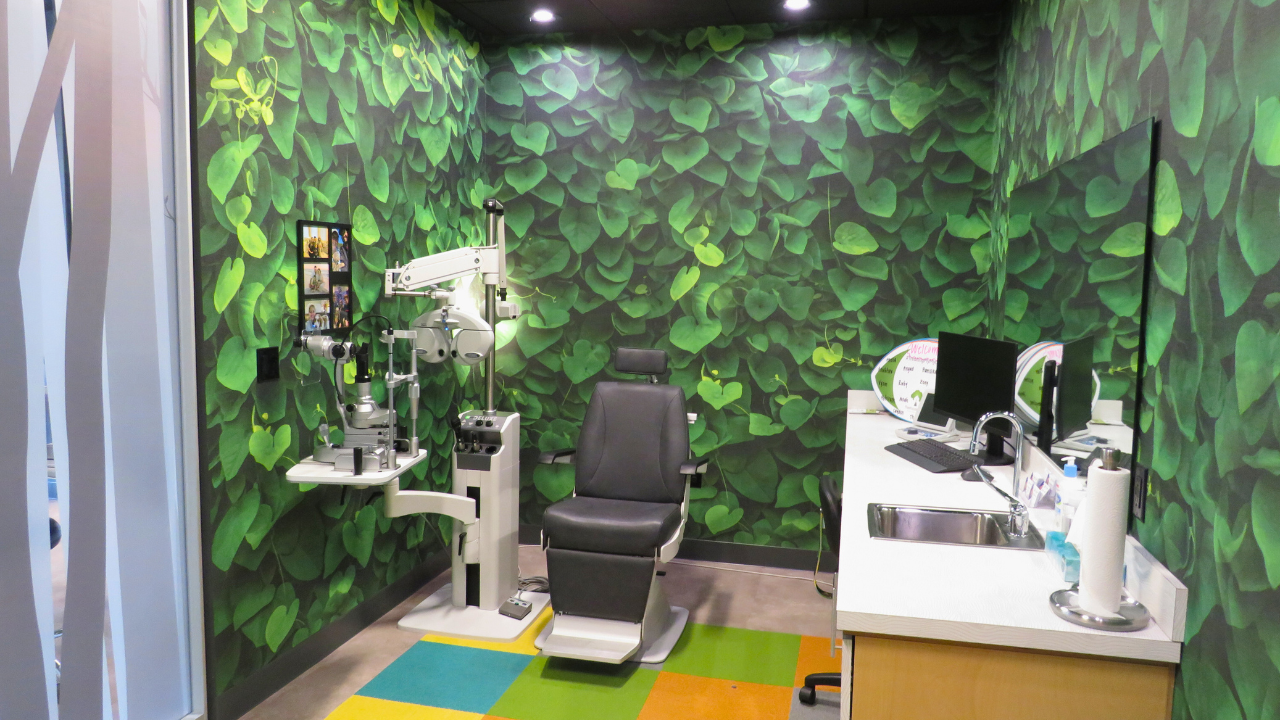If you’ve ever thought, “We had a school screening, so we’re good,” or “My work physical checked my vision,” you’re not alone. These quick tests are common, but they’re not a substitute for a full eye exam. In fact, many serious eye and vision problems go undetected during screenings.
At VisionQuest Eyecare, with locations in Greenwood and Fishers, Indiana, we often help patients and families understand the difference between a vision screening and a comprehensive eye exam, and why the latter is crucial for long-term eye health and visual performance.
Here’s what you need to know to protect your sight, and your family’s.
Vision Screening: A Quick Glance, Not the Full Picture

A vision screening is a brief, basic check meant to flag obvious visual issues, such as poor distance vision. They’re commonly done at schools, pediatrician offices, and during work physicals.
What a Vision Screening Includes:
- A basic visual acuity test (reading letters on a chart)
- Possibly checking for color blindness or depth perception
- Performed by a school nurse, general doctor, or trained volunteer
What It Doesn’t Include:
- A full evaluation of eye health
- Testing for eye diseases (like glaucoma or macular degeneration)
- Binocular vision, focusing, or eye teaming assessment
- Personalized prescriptions for glasses or contacts
In short, screenings are limited, they’re designed to spot red flags, not provide a diagnosis or treatment plan.
Comprehensive Eye Exams: A Deep Dive into Your Vision and Eye Health
A comprehensive eye exam at VisionQuest Eyecare goes far beyond reading an eye chart. It’s an in-depth assessment by a licensed optometrist that evaluates your overall eye health, visual performance, and potential risk factors.
What We Include in Every Comprehensive Eye Exam:
- Detailed patient history to understand symptoms, lifestyle, and health background
- Refraction testing to determine your exact prescription
- Eye teaming and focusing evaluation, especially important for kids and computer users
- Slit-lamp exam to inspect the front of the eye for issues like dry eye or cataracts
- Retinal and optic nerve exam to detect diseases like glaucoma or diabetic retinopathy
- Visual field testing, if needed, to assess peripheral vision
For children, we also assess visual skills critical for school, such as eye tracking and convergence. Adults benefit from early detection of age-related issues, and those with conditions like diabetes or high blood pressure receive tailored monitoring.
Why Screenings Often Miss the Mark
Many parents and adults mistakenly assume screenings are “enough”—especially if nothing unusual was flagged. But here’s the problem:
- A child can pass a school screening yet struggle with reading due to eye teaming or focusing issues.
- An adult may pass a work vision check but still be at risk for glaucoma, cataracts, or retinal damage, especially if they have underlying health concerns.
- Screenings don’t provide prescriptions for corrective lenses or detect early warning signs of disease.
At VisionQuest Eyecare, we often uncover issues during exams that screenings completely missed, helping patients avoid unnecessary discomfort or academic struggles.
Myth Busting: Common Misconceptions

“My child passed their school screening, so they don’t need an exam.”
False. Screenings check for basic distance vision, not the many visual skills needed for reading, focusing, and classroom success.
“My job physical checked my eyes last year.”
Great! But that test was likely focused on legal or safety requirements, not your complete eye health. Comprehensive exams detect early signs of diseases that can affect long-term vision.
“I’d know if there was something wrong.”
Not always. Many eye conditions, like glaucoma or macular degeneration, progress without obvious symptoms at first. Routine exams catch them early, when they’re most treatable.
When to Schedule a Comprehensive Eye Exam
Everyone, regardless of age, should have a comprehensive eye exam every year. Regular exams are essential not just for maintaining clear vision, but for detecting potential eye health issues early, before symptoms appear.
Here’s what the experts recommend:
- Infants: Their first eye exam at 6 months old to ensure early visual development is on track.
- School-aged Children: Every year starting before kindergarten, since vision plays a critical role in learning and classroom performance.
- Teens and Adults: Annually, especially for those who wear glasses or contact lenses, spend a lot of time on screens, or have a family history of eye disease.
- Older Adults: Yearly exams are crucial to monitor for age-related conditions like cataracts, macular degeneration, and glaucoma.
No matter your age or stage of life, annual eye exams are one of the easiest and most important steps you can take to protect your vision and overall health.
VisionQuest Eyecare: Your Partner in Lifelong Vision Health
With locations in Greenwood and Fishers, our team is committed to providing detailed, individualized eye care for the entire family. Whether it’s your child’s first eye exam, a checkup for yourself, or specialized care like dry eye treatment or myopia management, we’ve got you covered.
We make exams comfortable, comprehensive, and convenient—because your vision deserves more than a glance.
Schedule Your Comprehensive Eye Exam Today
Don’t rely on a vision screening to tell you everything. Get the full picture with a comprehensive eye exam from VisionQuest Eyecare.
Book your appointment now and take the next step toward clear, healthy vision.

Dr. Deanna Rankin is an experienced optometrist at VisionQuest Eyecare, with a specialization in ocular surface disease, pre and post-operative care, and ocular disease management. Born and raised in Greenwood, Indiana, Dr. Rankin loves to serve her community in her hometown.

